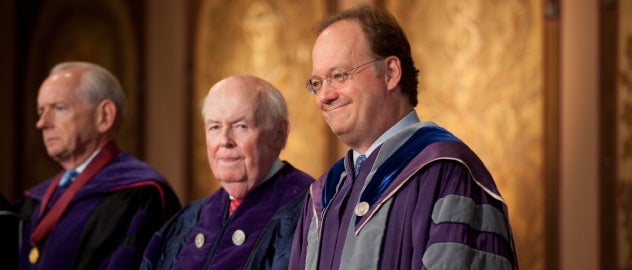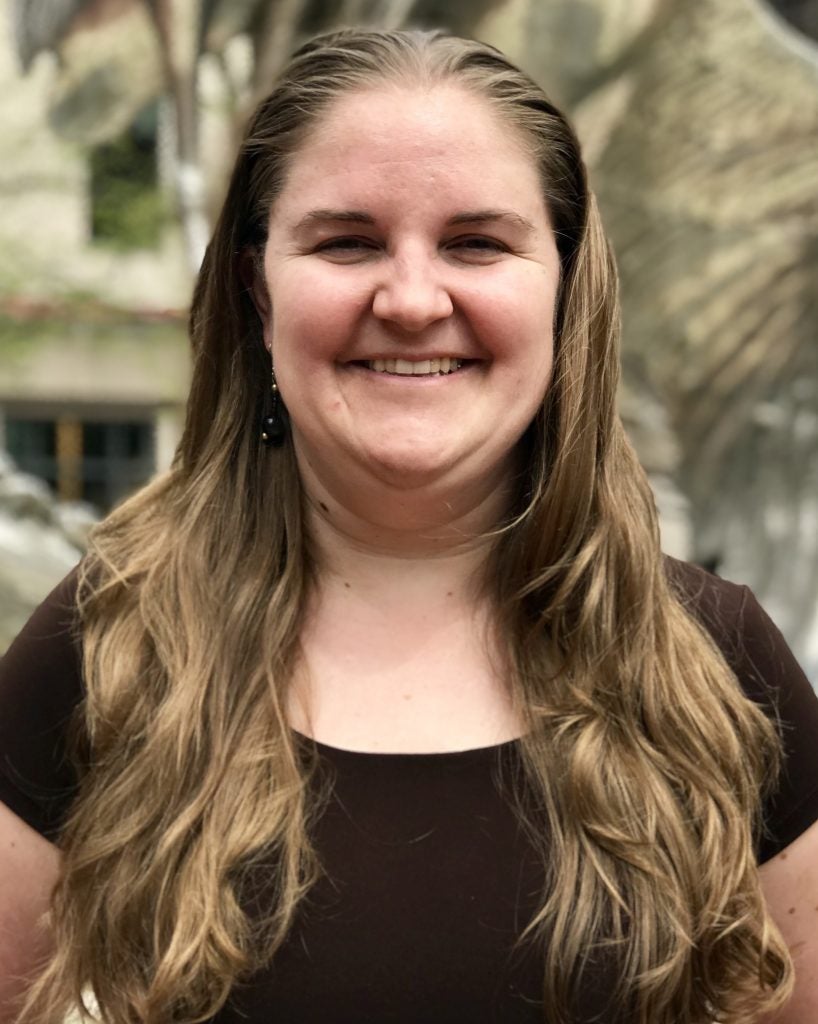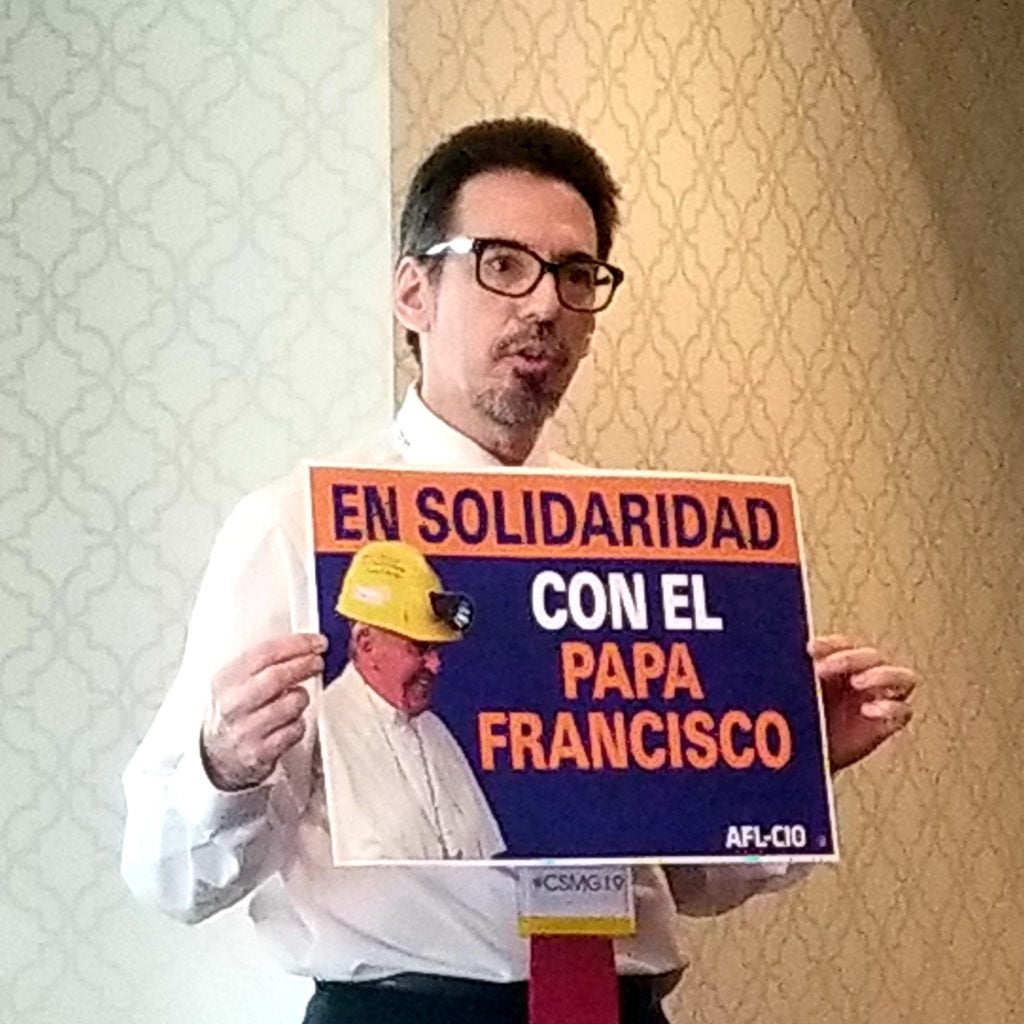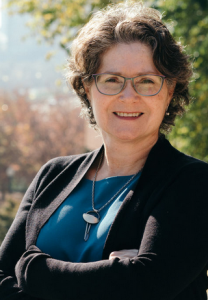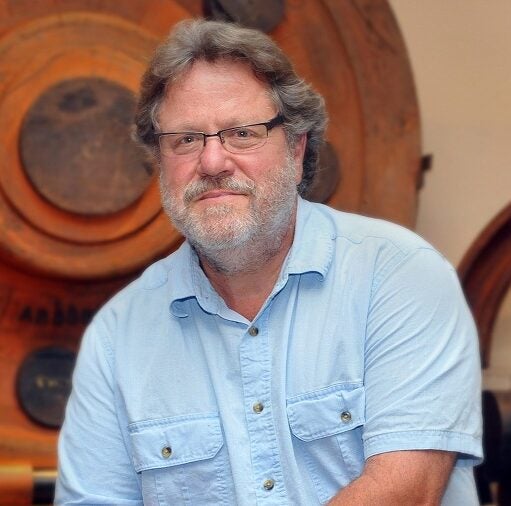About Us
Our Mission
Georgetown University’s Kalmanovitz Initiative for Labor and the Working Poor empowers working people to build an equitable, sustainable, and democratic economy through envisioning and creating new resources and strategies. As a labor center in the nation’s capital, we convene, research, educate, and mobilize for economic and racial justice and the common good informed by the Catholic and Jesuit traditions of worker justice. We bring together students, workers, scholars, labor and community organizations, activists, policymakers, and allies to incubate new ideas and transformative initiatives.
“Our times have changed, but the imperative has not. Still with us are the working poor and all those who are in need of economic justice. We are called anew to uphold the dignity of the laborer, to answer the challenge of globalization.”
– Georgetown President John J. DeGioia
Our History
Founded in 2009, the Kalmanovitz Initiative was created as a space to engage questions of workers’ rights and the future of the labor movement. Since then, the KI has taken on special projects that explore policies supporting workers’ rights, coalition building between labor and community groups, and connecting students to local advocacy and organizing opportunities.
Our People
Joseph A. McCartin, Ph.D., Executive Director

Joseph A. McCartin is a historian of the U.S. labor movement and 20th century U.S. social and political history. He is a Professor of History at Georgetown University, where he has taught since 1999, and served as the founding Executive Director of the Kalmanovitz Initiative for Labor & the Working Poor, since 2009. His research focuses on the intersection of labor organization, politics, and public policy. His first book, Labor’s Great War: The Struggle for Industrial Democracy and the Origins of Modern American Labor Relations, won the 1999 Philip Taft Labor History Book Award. His book, Collision Course: Ronald Reagan, the Air Traffic Controllers, and the Strike that Changed America, examined the origins and implications of the 1981 PATCO strike of air traffic controllers and won the Richard A. Lester Award for the Outstanding Book on Industrial Relations and Labor Economics. Most recently, he is co-author with Melvyn Dubofsky of Labor in America. He is the author of more than 140 articles, chapters, and reviews in the fields of labor history and labor studies, and his writing has appeared in a wide variety of venues including the New York Times, the Los Angeles Times, the Chicago Tribune, Dissent, and the American Prospect. His current research explores the intersection of labor organization and democracy, tracing the decline and attempted reconstruction of collective bargaining in the United States. He is a member of the boards of the Catholic Labor Network, and the Interreligious Network for Worker Solidarity, and a contributing editor to Labor: Studies in Working-Class History. And he is the Vice President of the Labor and Working-Class History Association.
Lane Windham, Ph.D., Associate Director
Lane Windham is an experienced organizer, educator, historian and activist. She holds a doctoral degree in U.S. history and her book about union organizing in the 1970s, Knocking on Labor’s Door: Union Organizing in the 1970s and the Roots of a New Economic Divide, was awarded the Organization of American Historians’ 2018 David Montgomery Award. Windham spent nearly twenty years working in the union movement, including as media outreach director for the national AFL-CIO and as a union organizer in the South. Windham’s current research focuses on the intersection of gender, race and class, and how working people can build power by forging a new social contract. She is a frequent commenter in the media, and has published widely including in The Washington Post, The American Prospect, The Hill, the Baltimore Sun, the Pittsburgh Post-Gazette, and elsewhere.
Windham co-directs WILL Empower, an ambitious collaborative project with Rutgers University to promote women and non-binary people’s leadership in the labor movement and the struggle for economic justice. She is active with the Labor and Working Class History Association (LAWCHA).
She earned an M.A. and Ph.D. in U.S. history from the University of Maryland and a B.A. from Duke University.
James C. Benton, Ph.D., Director of the Race and Economic Empowerment Project
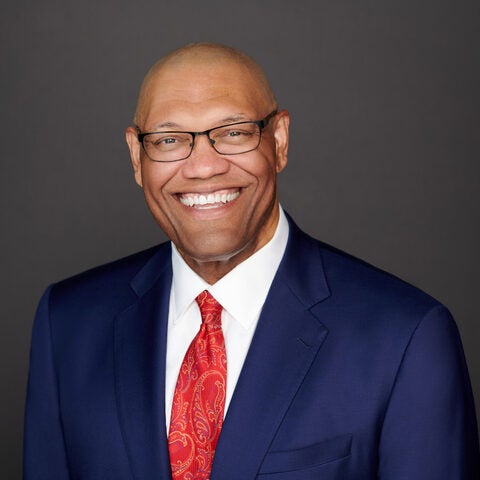
James C. Benton is director of the Race and Economic Empowerment Project at the Kalmanovitz Initiative. This position links KI and Georgetown students with community activists and organizations fighting inequality in Washington, D.C. His community work also includes serving as a member of the executive committee of DC Jobs with Justice. He is the author of Fraying Fabric: How Trade Policy and Industrial Decline Transformed America (University of Illinois Press, 2022), the winner of the 2017 Herbert Gutman Award. Fraying Fabric interprets U.S. trade policy and political shifts amid the decline of the nation’s textile and apparel industry in the past half century.
Dr. Benton’s historical and research interests include labor and social movements as well as United States history from the New Deal to the present. He is a co-designer of Creating an Equitable City, a project starting in the fall of 2023 with Georgetown’s Capital Applied Learning Lab. This three-year project is designed to help students understand the existence of inequality in Washington, D.C. (in areas such as housing, healthcare, and criminal justice) and develop policy and community approaches to reduce or eliminate those inequalities.
Before entering academia, Dr. Benton was a journalist and nonprofit researcher. In his journalism career, his first exposure to labor came as a shop steward and bargaining unit member with the Akron Newspaper Guild (now part of Local 1, the Northeast Ohio Newspaper Guild). His nonprofit work included investigations on money in politics, whistleblower protections, and congressional ethics, as well as lobbying for the 2006 reauthorization of the Voting Rights Act.
Dr. Benton holds doctoral and MA degrees in US history from Georgetown University, an MA in liberal studies from Georgetown, and a BA in journalism and mass communication from the University of North Carolina at Chapel Hill.
Dawn Carpenter, DLS, Director of the Solidarity Economy Workshop

Dawn Carpenter is an ethicist and a leading authority on the theological nature of work and the moral responsibilities of wealth. She is the host and executive producer of the What Does It Profit podcast that seeks to tell the stories of the solidarity economy through the lens of contributive justice theory. She comes to this work as a veteran of Wall Street where she engineered the capitalization of over $3 billion for some of the country’s most venerable social purpose corporations. Her first podcast, More than Money, reached the Top 15 on the iTunes Business chart and was rated as a Top 15 Podcast that Will Inspire You to Change the World by Causeartist.com.
Her work seeks to provide a moral foundation for economic and social justice. In recognition for her work, she was awarded the 2020 Spirit of Georgetown Award. She is currently completing her first book entitled “Co-workers with God: Contributive Justice and God’s Plan for Work and Wealth.” She serves as a senior advisor to the Vatican’s Economy of Francesco’s Finance and Humanity working group and is a member of the economic working group of its Laudato Si Action Platform. She also serves on the finance and investment committees of several organizations. She holds graduate degrees in political science, public finance, and Catholic theology. Her doctorate is in the multi-disciplinary field of liberal studies.
Dmc266 [at] Georgetown [dot] edu
Sara Myklebust, Bargaining for the Common Good Research Director
Sara Myklebust is the Research Director at KI focused on Bargaining for the Common Good. Previously, she worked for the Bricklayers and Allied Craftworkers (BAC) as their Deputy Director for Research and Education and as a Senior Lead Researcher at the Center for Strategic Research (CSR) in the Organizing Department of the AFL CIO. Sara is originally from Tucson, Arizona and has worked with the Ironworkers as a strategic researcher organizing immigrant rebar workers across the Southwest. Sara worked as a community organizer and policy analyst at FRESC, now UNE, around the commuter and light rail expansion and development impacts. She has experience in legislative campaigns, advocacy work and community organizing, and extensive knowledge of municipal planning and procurement processes. She earned a Master’s Degree in Public Affairs from the University of Texas at Austin, where she focused on immigration policy. She loves backpacking with her partner Noah and discovering new recipes to cook at home.
sara.myklebust [at] georgetown.edu
Anna LoSecco, MPH, Assistant Director of Finance and Operations

Anna is the Assistant Director of Finance and Operations of the Kalmanovitz Initiative for Labor & the Working Poor. Anna comes from a political development background and has spent most of her career fundraising for public health professionals running for the United States Congress. She has experience as a political consultant for local, statewide, and federal candidates, and most recently worked at University of Texas at Austin’s Center for Health Communications promoting equitable tobacco cessation programs.
Anna has a dual BA in Political Science and Anthropology from the University of Colorado and an MPH from Emory University’s Rollins School of Public Health.
Patrick Dixon, Ph.D., Research Analyst
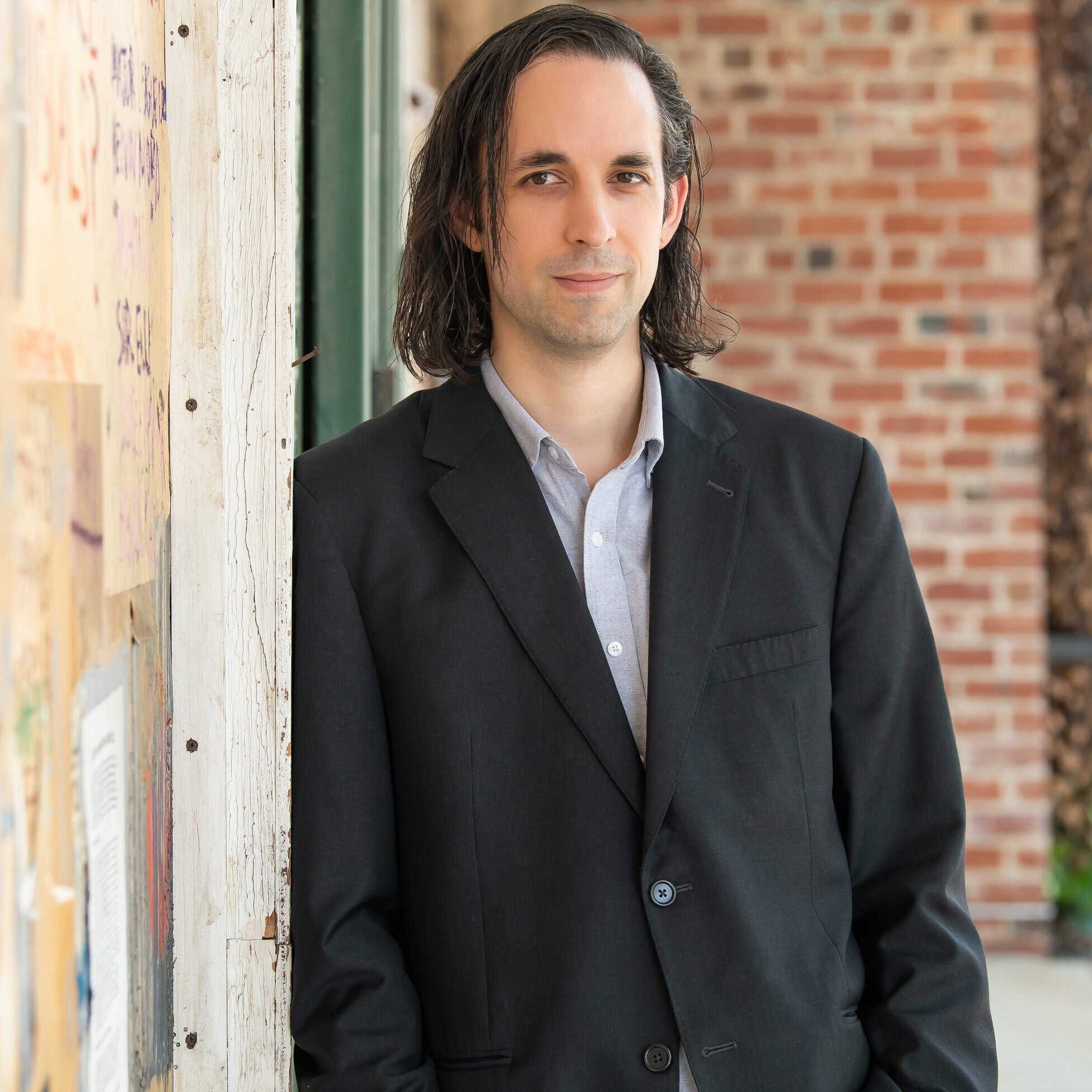
Patrick Dixon graduated from Georgetown University with a doctoral degree in History in 2015. His areas of specialization and research interests include the food and restaurant industries, agribusiness, and the nature of work in rural communities. His dissertation was entitled, “The Hamlet Factory Fire and the Political Economy of Poultry in the Twentieth Century.” He has also carried out research on public and private sector unionism, the tech industry, and workplace safety, and is presently focused upon new models of university procurement. He is the Managing Editor of LABOR: Studies in Working-Class History, and frequently carries out interviews on Union City Radio’s Labor History Today podcast. Prior to moving to the United States he received a bachelors degree in American Studies at the University of Sussex and a masters in Modern History at University College London.
Juan Belmán Guerrero, Program Manager
Juan Belmán Guerrero graduated from The University of Texas at Austin in 2017 where he received a Bachelor’s degree in Anthropology. During his time at UT Austin, he organized with the University Leadership Initiative, a student organization that focuses on supporting immigrant students and community members. Through his five years of community organizing he was able to foster community relationships. In recognition of his efforts, he was awarded the Social Justice Award by American Gateways. Prior to joining the Kalmanovitz Initiative for Labor and the Working Poor in Fall of 2018, he was working at Workers Defense Project to build and facilitate a coalition among legal service providers in Central Texas. At KI, Juan serves as Program Manager, coordinating KI’s research and organizing internships and working with immigrant and housing coalitions in DC.
juan.belman [at] georgetown.edu
Alexis Harper, Director of Communications

Alexis Harper is a student, community organizer and freelance writer located in the DC area. She currently serves The Kalmanovitz Initiative as the director of communications and events. She joined KI through the WILL Empower Apprenticeship program in 2022. Alexis is finishing her dissertation in African American literature at Howard University where she focuses on nationalism, nativism and citizenship through the lens of Black speculative fiction. In addition to her work with KI, Alexis organizes mutual aid in DC’s Ward 1 neighborhoods through various grassroots organizations. She is a graduate of Fisk University (B.A. ’13) and Virginia Tech (M.A. ’16).
ah1802 [at] Georgetown [dot] edu
Stephen Lerner, Bargaining for the Common Good Fellow
Stephen Lerner is a labor and community organizer and architect of the groundbreaking Justice for Janitors campaign. Over the past three decades Lerner has organized hundreds of thousands of janitors, farm workers, garment workers, and other low-wage workers into unions, resulting in increased wages, first-time health benefits, paid sick days, and other improvements on the job. A leading critic of Wall Street bankers and the increased financialization of the U.S. economy, Lerner argues the growing power and influence of the finance industry has led to record income inequality and served as the primary driving force behind the creation of overwhelming debt obligations seen at the state and local level. He advocates for the use of non-violent civil disobedience as a tactic to challenge the influence of Wall Street and corporations. Lerner is a frequent contributor on national television and radio programs and has published numerous articles charting a path for a 21st century labor movement focused on growth and meeting the challenges of a global economy.
Leon Fink, Ph.D., Former editor of LABOR
Senior Scholar and Director of International Initiatives

Leon Fink is Distinguished Professor Emeritus at the University of Illinois Chicago where he taught for many years as a member of the Department of History. He is a specialist and researcher in American labor, immigration history, and the Gilded Age/Progressive Era. The author or editor of a dozen books, Leon’s most recent work adopts a transnational and comparative view of the Gilded Age/Progressive Era as well as seeking out the roots of today’s “globalized” economic order. Currently, Leon serves the editor of the LABOR: Studies in Working-Class History, which is the official journal for the Labor and Working-Class History Association (new window). LABOR is housed and sponsored by the Kalmanovitz Initiative for Labor and the Working Poor at Georgetown University. A subscription to LABOR is available through membership in LAWCHA. Leon also contributes to KI as a Senior Scholar and Director of International Initiatives.
Clayton Sinyai, Executive Director of the Catholic Labor Network
Clayton Sinyai is the Executive Director of the Catholic Labor Network, an association of Catholic union activists – clergy, religious and lay – committed to Catholic Social Teaching on labor and work, and to fostering collaboration between Church and labor organizations to advance worker justice. A former rubberworker, railroad clerk, and letter carrier, he has spent the past two decades in a variety of union staff roles as a researcher, organizer, and communications director. Clayton is a member of (Construction) Laborers’ Union Local 11 in Washington DC and Knights of Columbus Council 17056 in his home parish of St. Philip the Apostle Catholic Church in Falls Church VA. He’s also the author of Schools of Democracy: A Political History of the American Labor Movement (new window) (Cornell, 2006).
clayton [at] catholiclabor.org
Br. Ken Homan, S.J., Graduate Assistant
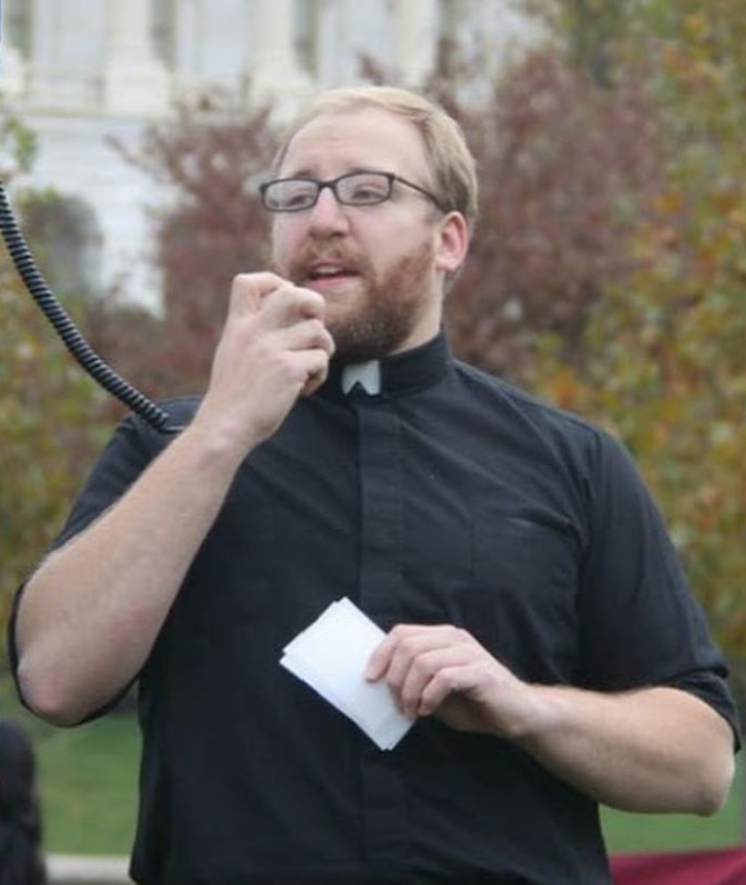
Br. Ken Homan is a Jesuit brother and doctoral student at Georgetown University. Ken started helping with the Kalmanovitz Initiative for Labor and the Working Poor by volunteering with the Just Employment Policy Project at Jesuit colleges and universities. He now works as a graduate assistant, organizing with the Interreligious Network for Worker Solidarity, a network of clergy and religious leaders committed to advocating in support of worker rights. As a Jesuit, Ken is passionate about the connections between faith and work for justice. His graduate work focuses on the Catholic Church and the labor movement in the United States, especially in the intersection between faith, work, and racism. Ken has a master’s in history from Fordham University and a master’s in theology from Boston College.
Debbie Berkowitz, Practitioner Fellow

Debbie Berkowitz is a nationally recognized worker safety and health policy expert and advocate, with over three decades of experience working to improve safety on the job. She is the former Chief of Staff and Senior Policy Advisor at the Federal Occupational Safety and Health Administration (2009-2015). Her past positions also include leading worker safety programs at the National Employment Law Project, the United Food and Commercial Workers Union and at the AFL-CIO. She has worked with national and state partners to develop successful policies and campaigns that improved conditions for vulnerable, low-wage workers in dangerous industries, including temporary workers and those in the meat, poultry and food industry. Most recently she has been involved in fighting back against state efforts that weaken child labor laws and endanger minors. She is the author of widely cited reports and research on worker safety issues. She has testified numerous times before Congressional and state legislative committees and her writing has been published in academic journals and the Washington Post, the American Prospect, Bloomberg BNA, Workers’ Compensation, Quartz, the Hill and more. Debbie is regularly quoted by major news outlets for her expertise on worker safety and health. Debbie is the recipient of numerous awards, including the American Public Health Association’s Alice Hamilton Award.
debbie.berkowitz [at] gmail.com
Amaury Pineda, PhD., Practitioner Fellow
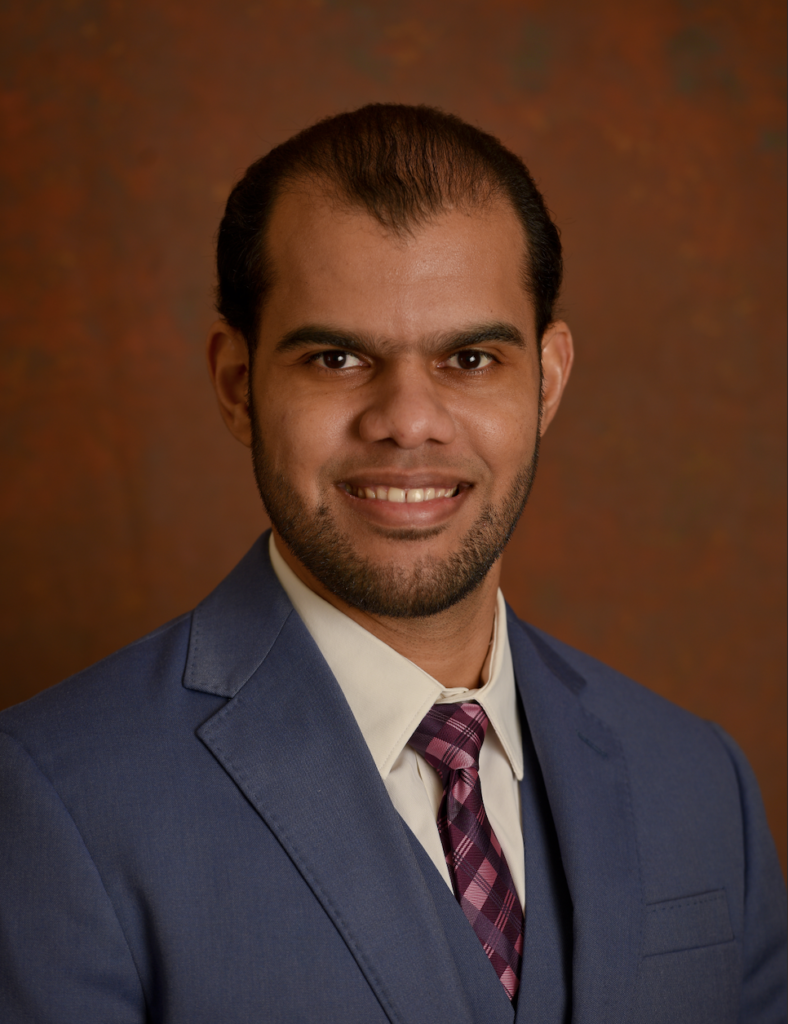
Amaury Pineda is a policy analyst for Jobs With Justice, a national network made up of thousands of organizations and individuals committed to transforming the lives of working people. In his role, Pineda uses his research skills to find new ways to increase workers’ power through local, state, and federal policy. Before joining Jobs With Justice, Pineda represented and advocated for graduate students’ rights as the Graduate Student Association president at Western Michigan University. Also, he holds a law degree from the Autonomous University of Santo Domingo, Dominican Republic, where he worked as a labor lawyer before pursuing a Ph.D. at Western. Pineda completed his Ph.D. in political science, focusing on comparative politics and political theory, in Dec. 2021. You can find Pineda watching movies, playing chess or basketball, and spending time with friends in his free time.
Sherry Linkon, Ph.D., Affiliated Faculty
Sherry Lee Linkon is a Professor of English and Director of the Writing Program at Georgetown University. Her teaching and research involve two main areas: teaching and learning in the humanities and the interdisciplinary study of working-class culture. In working-class studies, Linkon’s work focuses on social class in higher education, deindustrialization, and contemporary working-class literature. Her edited collection Teaching Working Class (Massachusetts, 1999) was named one of the most important academic books of the 1990s by Lingua Franca magazine. With John Russo, she co-authored Steeltown USA: Work and Memory in Youngstown (Kansas, 2002) and co-edited New Working-Class Studies (Cornell, 2005). She is currently working on a new book, The Half-Life of Deindustrialization, examining early twenty first-century working-class narratives reflecting the continuing effects of economic restructuring. She was the founding President of the Working-Class Studies Association, and she edits a weekly blog, Working-Class Perspectives.
John Russo, Ph.D., Visiting Scholar
John B. Russo was a founding member and Co-Director of the Center for Working-Class Studies at Youngstown State University. Along with conducting research on working-class history, labor studies, urban studies, and deindustrialization, he helped design and taught in the first certificate program in Working-Class Studies in the United States. John brings to the Kalmanovitz Initiative the long-running, renowned weekly blog, Working-Class Perspectives, which he edits with Georgetown English professor Sherry Linkon. In 2019, the blog published 43 posts that were read over 94,000 times by readers in 176 countries. You can read posts from the Working-Class Perspectives blog here. Read more about John and our other visiting scholars.
Meet our practitioner fellows, visiting scholars, and student leaders.
Contact Us
The Kalmanovitz Initiative is located in 209 Maguire Hall at Georgetown University in Washington, DC. Please find directions to our office here.
209 Maguire Hall
Georgetown University
37th and O Streets NW
Washington, DC 20057
202.687.2293

